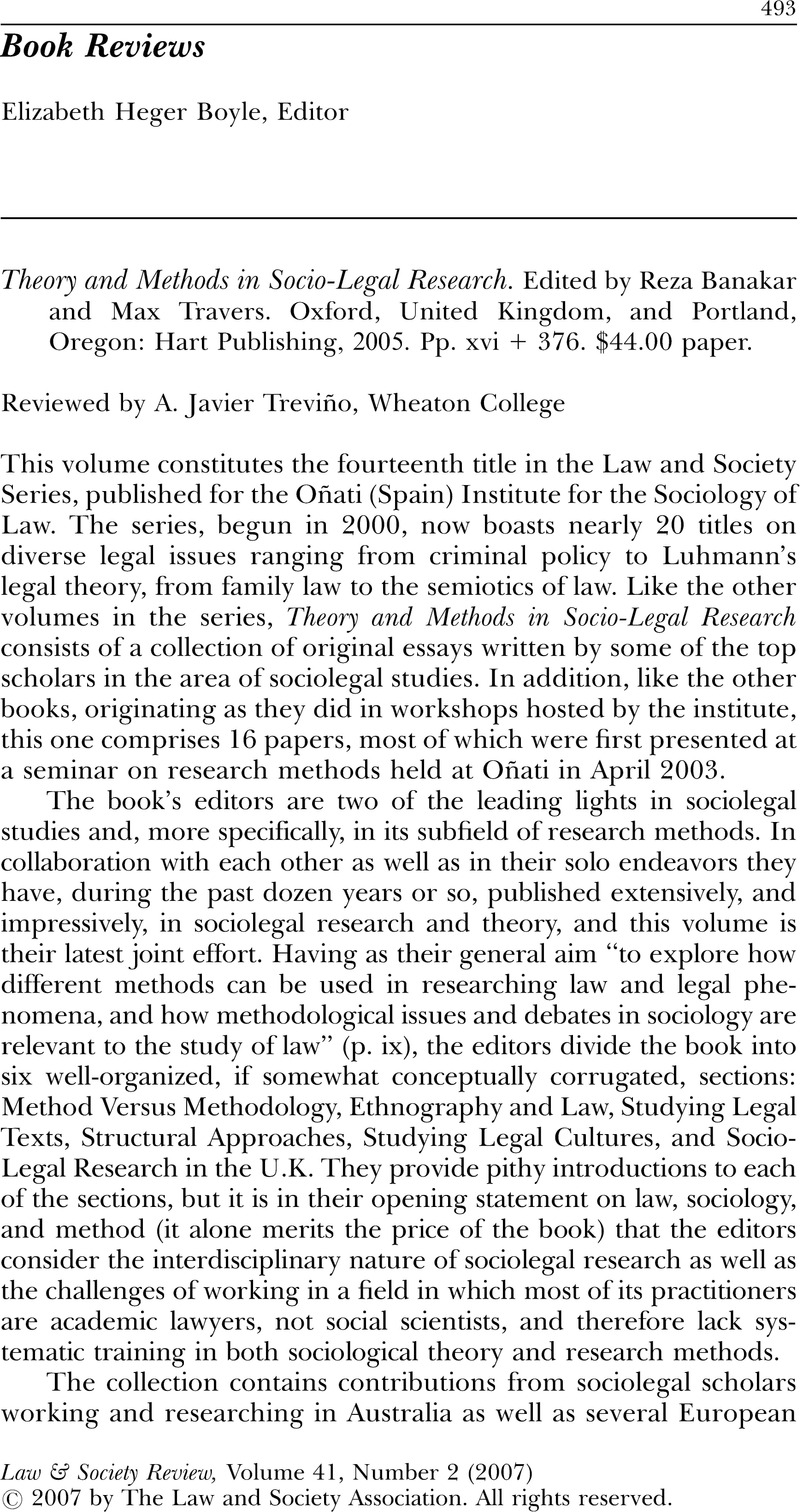Crossref Citations
This article has been cited by the following publications. This list is generated based on data provided by Crossref.
Akinkugbe, Olabisi D.
2017.
Revisiting the Economic Community of West African States: A Socio-Legal Analysis.
SSRN Electronic Journal,
Afandi, Fachrizal
2022.
Researching the Legal Culture of the Bureaucracy: An Introduction to Ethnographic Study of Procedural Criminal Law.
The Indonesian Journal of Socio-Legal Studies,
Vol. 1,
Issue. 2,



